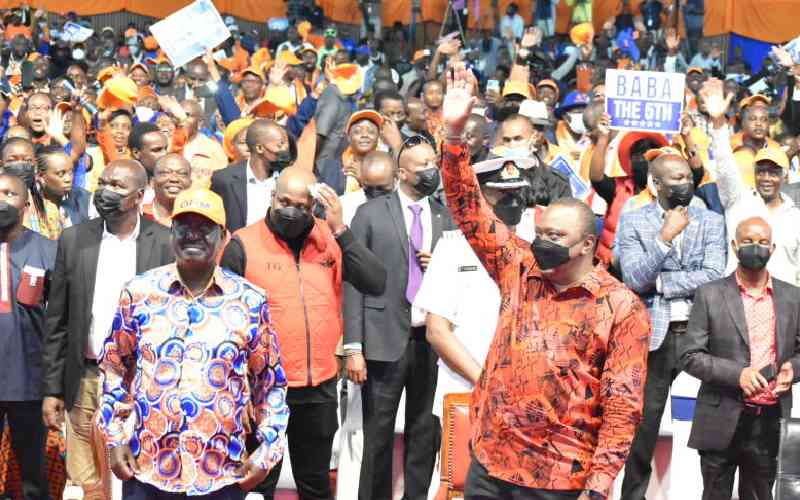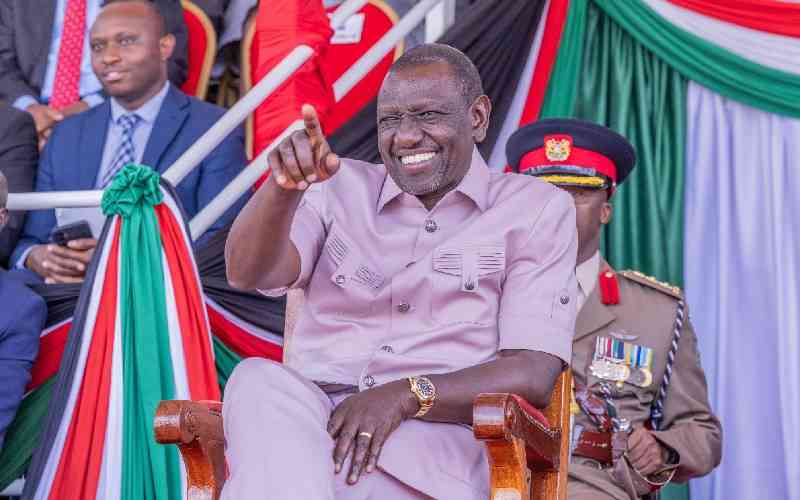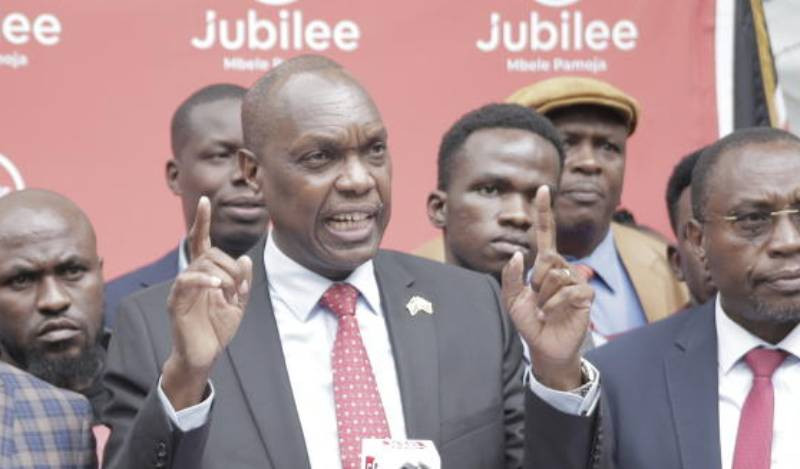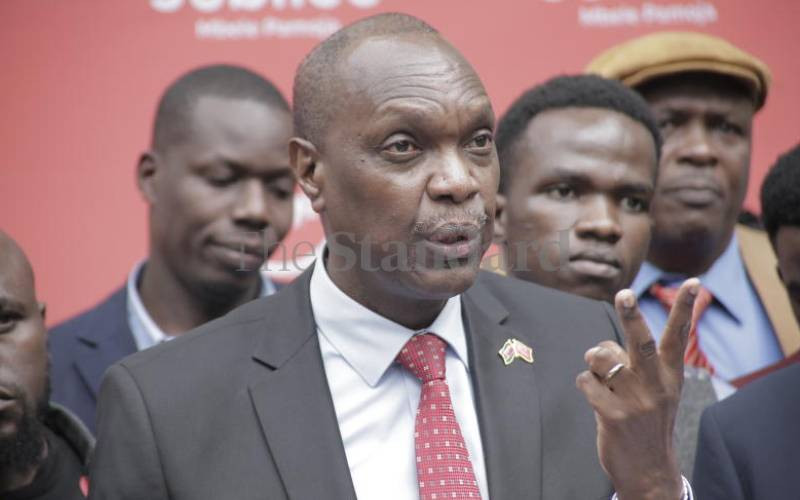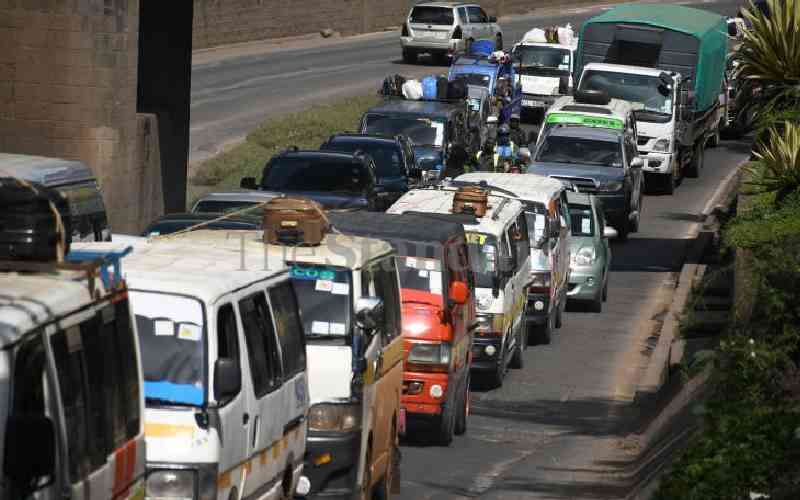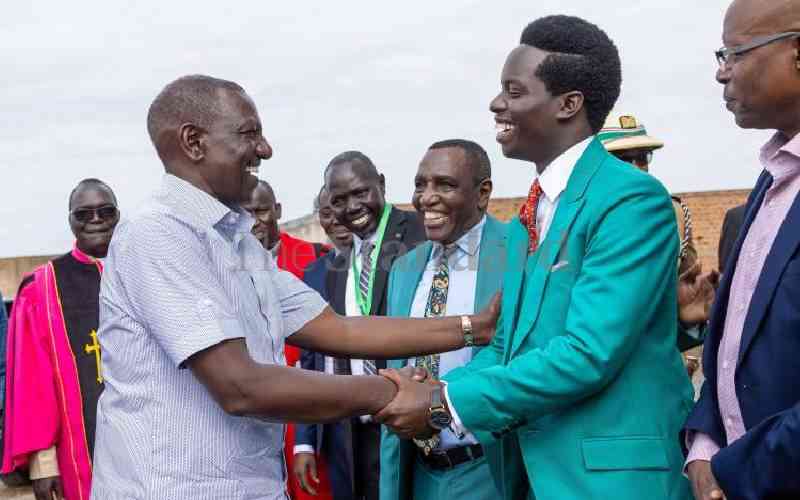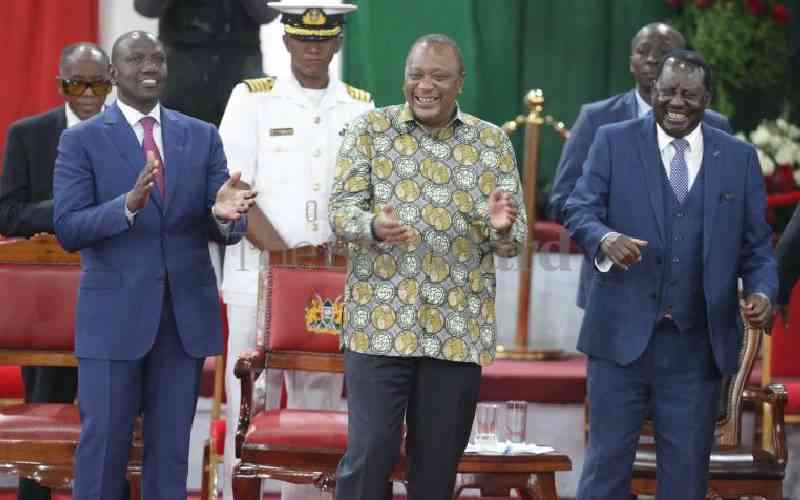In the middle of the turmoil that has engulfed our country particularly from August last year but actually since Jubilee came to power in 2013, it is extremely easy to miss the pleasant wonders and little miracles taking place in our country.
The wonders are that the Constitution we fought so hard and so long for is working and standing its ground as was intended. We just need to commit ourselves to protect and perfect it and we will be as close as we can to being the perfect country we aspire to.
The greatest concern Kenyans had when they promulgated the new Constitution was that forces of reaction and status quo would in future get a way of reversing the new order it ushered as they had done with the Lancaster Constitution. The National Convention at the Bomas of Kenya shared these fears. The conference therefore entrenched the most critical provisions of the constitutional structure so that it was impossible to amend them unless through a referendum.
Luckily, when the Constitution was promulgated on August 27, 2010, Kenya was being governed by a Grand Coalition government which, at least in word, professed full support for the new order and promised its faithful implementation.
But even in those early days, it was a difficult time for the Constitution as we struggled to ensure we implemented it as Kenyans had intended. There were differences in opinion as to what the Constitution intended which sometimes brought very deep divisions within the then ruling coalition.
For instance, in January 2011, President Kibaki appointed Justice Alnashir Visram to be the Chief Justice of Kenya, Githu Muigai as Attorney General and Kioko Kilukumi as Director of Public Prosecution.
These appointments caused divisions because they brought into question the powers of the President under the new constitutional dispensation. As the High Court was to rule later, the appointments had offended the Constitution on very many fronts. The appointment process had to be redone in an entirely different manner.
For two and a half years, the Grand Coalition oversaw the implementation of the Constitution through similar tussles but at the end of each, a lot of progress was made in giving life to the Constitution. Even as we pushed and pulled within the coalition, there was a general understanding that genuine constitutional change was the only way through which Kenya would leave the club of retrogressive, under-developed countries and take its place as a vibrant modern economy and a democracy.
Campaigned against
The Constitution was, however, dramatically weaned from this nurturing when in April 2013 the Jubilee administration took over the leadership of the country. At the helm of the administration was Deputy President William Ruto, who had openly campaigned against the new Constitution and had spent the better part of the year 2011 trying to stop the new order.
As it was to unravel, President Uhuru Kenyatta too did not like the new Constitution and often went on record stating that he wished Kenya was under the old Constitution that his father, Jomo Kenyatta, had used to run roughshod over Kenyans.
Our Constitution has since 2013 faced its nemesis in Uhuru and Ruto. At every opportunity, they have tried to invalidate clear provisions of the Constitution by either ignoring them or overriding them with decrees and legislation. The most blatant attempt was in 2015 when the Jubilee administration attempted to make amendments to security laws in blatant violation of the Constitution. It is only through the outrage expressed by the people of Kenya, the court action by the opposition and the strictness of the Judges that this attempt at overthrowing our Bill of Rights did not come to fruition.
What should be clear to us Kenyans is that the struggles we mounted from the 1980s through the 1990s for a new Constitution were never in vain. Those struggles gave us a good Constitution that is standing its ground and pushing back at a dictatorship trying to raise its head. What we have gone through as a country since January 2018 is testimony to this. We are seeing today how the Constitution is standing firmly for the protection of our liberties and check on the excesses of the government.
We did not only fight long and hard. We also thought deeply. Take a look at what our Constitution is doing to detention without trial. The delegates at the Bomas of Kenya all agreed that Kenyans viewed the abolition of “detention without trial” as one of the most important measures towards ensuring that a dictatorship shall never take root in Kenya again.
If the provision of “detention without trial” were still in our Constitution, we would not be reading of trumped up charges being preferred in outstations like Ngong and Kajiado. Many of our leaders, including MPs and civil society movers and journalists would be in solitary confinement by now.
Stay informed. Subscribe to our newsletter
All it would take was for an overbearing Interior Minister like Fred Matiang’i to sign a detention order and the targets would be whisked off to Kamiti never to be seen again for years.
That is what Justus ole Tipis did with my first detention. That is how the likes of Martin Shikuku, George Anyona, Ngugi wa Thiong’o and later Kenneth Matiba and Charles Rubia ended up in detention. Nobody needed to explain anything.
In recent days, journalists have gone to court and obtained orders stopping their arrest. We can bet that without this Constitution, Uhuru Kenyatta would have thrown several journalists into detention by now. Thanks to this Constitution, those days are gone and all that Uhuru can do is to throw tantrums.
We have seen how the guarantee of the right to bail has also prevented the State from abusing the rights of Kenyans. Under the old order, one would be put behind bars for years on end by being charged with a capital offence, only for the prosecution to fail to present any evidence at the trial.
Indeed, many of the people who pleaded guilty to sedition charges in the 1980s and 1990s did so because it was better to receive a jail term and begin to serve it immediately than spend a similar period of time in remand prison waiting to prove your innocence.
The second thing that should be clear to us is that an independent Judiciary is an indispensable part of the protection of our fundamental human rights.
The day we allow the Executive to intimidate our Judiciary is the day we shall kiss our civil liberties “goodbye.” Imperfect as it is, our Judiciary is standing its ground and pushing back.
This realisation was at the centre of the disagreement within the Grand Coalition when President Kibaki attempted to nominate a Chief Justice. Kenyans forced the President to respect the provisions of the Constitution that reserved the function of nomination of judges to an independent Judicial Service Commission.
Today, the only threat that the Executive can issue against a judge is through political and criminal banditry as happened to the Supreme Court in October last year. So long as judges remain free to make decisions based on their learning and their conscience, Kenyans shall continue to enjoy freedom from dictatorship. We must protect our judges and our courts.
The third and final issue that should be clear to us is that we are the State, we are the Nation. We are the Country. The only concern of our Constitution is our welfare and not that of any elected or appointed public officer.
We must be much outraged when, for instance, the Inspector General of Police views himself to be so superior that he cannot accept to be summoned by a judge.
The judges are not summoning IG to their homes. They are summoning him to a court of law. The Inspector General of Police cannot be too superior to submit to our courts. We employ these public officers and pay them every month. We have a right to expect that when required, they will appear before our Judiciary to account to us how they are protecting our civil liberties.
This is a struggle we must wage every day of our lives especially now that we know our struggles are never in vain. If we don’t demand that everyone from the President downwards submits to our Constitution and to the constitutional organs that we created to keep them accountable to us, then we shall have allowed a “State capture” by a few individuals and we shall cease to be citizens of our country and become subjects to a political oligarchy.
- The writer was the NASA presidential candidate in last year’s elections
 The Standard Group Plc is a
multi-media organization with investments in media platforms spanning newspaper
print operations, television, radio broadcasting, digital and online services. The
Standard Group is recognized as a leading multi-media house in Kenya with a key
influence in matters of national and international interest.
The Standard Group Plc is a
multi-media organization with investments in media platforms spanning newspaper
print operations, television, radio broadcasting, digital and online services. The
Standard Group is recognized as a leading multi-media house in Kenya with a key
influence in matters of national and international interest.
 The Standard Group Plc is a
multi-media organization with investments in media platforms spanning newspaper
print operations, television, radio broadcasting, digital and online services. The
Standard Group is recognized as a leading multi-media house in Kenya with a key
influence in matters of national and international interest.
The Standard Group Plc is a
multi-media organization with investments in media platforms spanning newspaper
print operations, television, radio broadcasting, digital and online services. The
Standard Group is recognized as a leading multi-media house in Kenya with a key
influence in matters of national and international interest.

